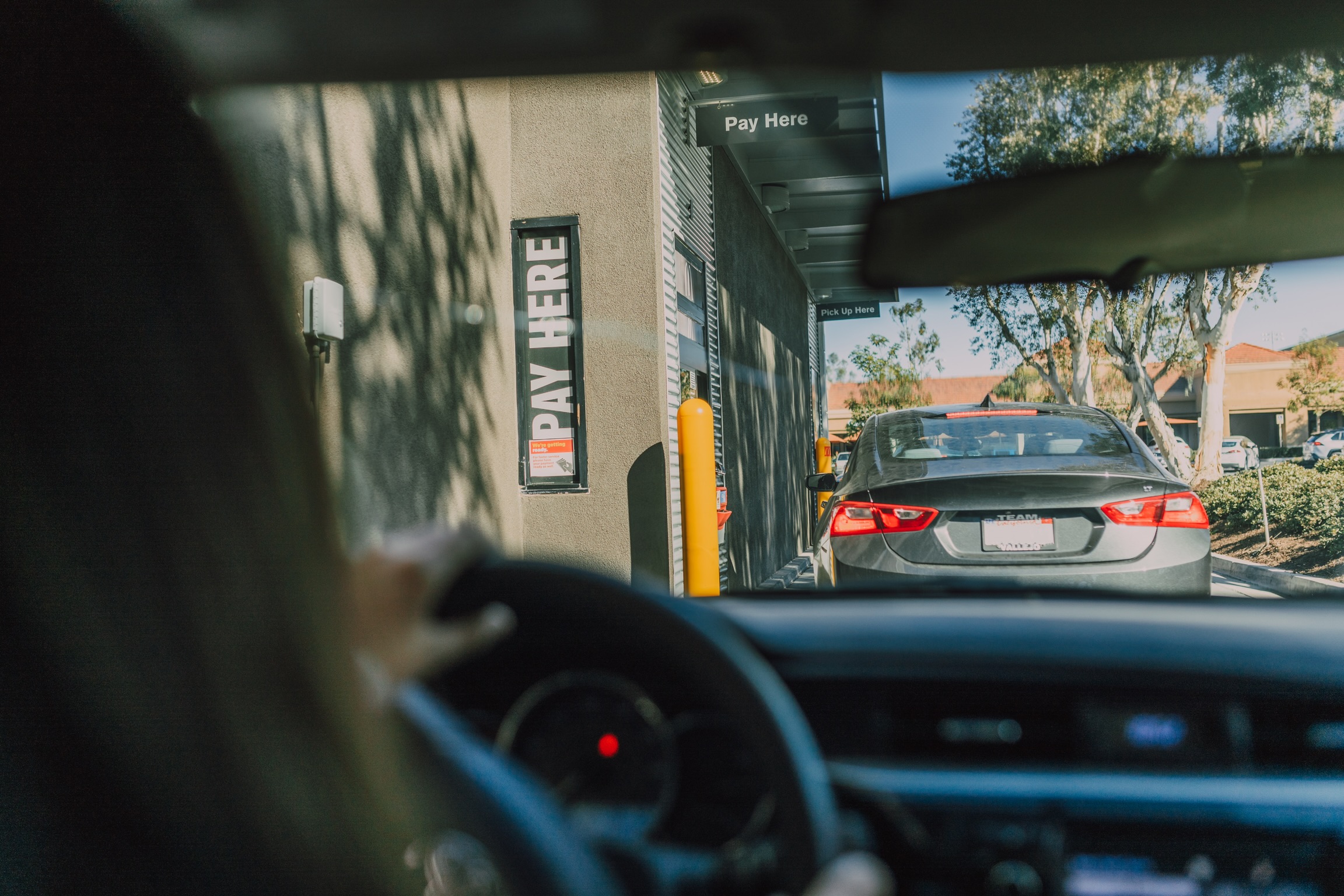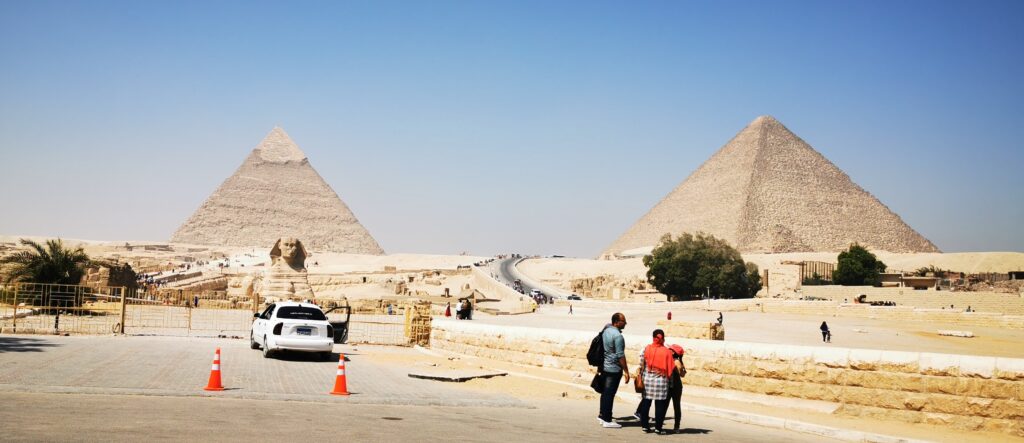The 29-year-old New Cairo-based Mohamed Ismail drives through Starbucks at Emarat Misr gas station to pick up his morning coffee as he begins his work commute towards Downtown Cairo.
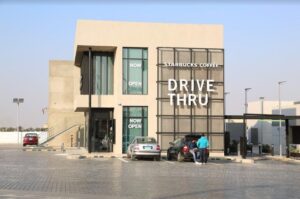
With the rise of the global health crisis in early 2020, restaurants worldwide were forced to shut down their dining rooms to mitigate the spread of the coronavirus. As a result, consumers’ safety precautions heightened and began opting for drive-thrus more frequently as the pandemic and its aftershock continued to shape their feelings towards dine-ins. This change in consumer behavior drove food chains to transition toward a drive-thru model – a phenomenon that began in the United States nearly 75 years ago.
Egypt was no different. In 1995, Egypt saw its first drive-thru at Maadi Road 9’s McDonald’s, Samuel Barsoum, marketing manager at VIA Drive-Thru recalled. Over the next 30 years, drive-thru options in Egypt were scarce and limited to popular fast-food chains. But the market has matured since then, he added. This maturity was primarily driven by the pandemic, following the global consumer trends.
The country saw its first fully operational drive-thru complex, The Drive by Waterway, in 2020, just a few months after the global health crisis began. The gourmet fast food vendors provide a drive-thru service alongside a dine-in space. Since its launch, its drive-thru customers make up 23% to 33% of its customer base.
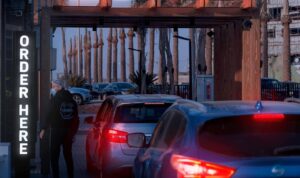
Simultaneously, VIA Drive-Thru application, launched in mid-2019, began expanding by transforming fast F&B chains into digital drive-thrus based on curbside pickup service, relieving suppliers of the extra costs that arise with physical drive-thru infrastructures such as menu boards, speakers, microphones and designated car lanes.
The rise
Although the pandemic played a pivotal role in developing Egypt’s drive-thru market, it is only one piece of the puzzle. Egypt’s lifestyle revolves around food and traffic congestion. This makes the country a ripe market for the drive-thrus to thrive, Zeyad Hossam, founder of The Drive by The Waterway and co-founder of Eaten for Restaurant Management, pointed out.
Egyptians lose 80 hours a year to traffic, according to Tomtom Traffic Index 2021, a traffic index that ranks the number of hours spent on traffic in 404 cities across 58 countries. Hossam, noted that Egyptians are naturally lazy food-lovers who constantly seek convenient and tasty food options while commuting.
“As young employees and parents, we find it very challenging to pick up something [from a store], but we do not want to change our direction, wait, or waste our time in queues. Parking sometimes is just a huge waste of time. So basically, we just opt to pick up something quickly on our way,” Barsoum said.

For Ismail, a frequent drive-thru goer, it is all about avoiding extreme weather conditions. “Be it the heat in the summer or cold in the winter, I would prefer a drive-thru than getting out of the car. It is also more convenient when I am on the go and need to move quickly,” he said.
The most popular F&B drive-thrus worldwide are burgers and coffee. This trend also resonates in Egypt, primarily because these foods are consumable while driving. As Hossam from Waterway puts it, “Drive-thrus were based on fast food. But people are asking, why is there nothing healthy? Because who is going to eat a salad while driving? But you can hold a burger and a cup of coffee.”
Maine is a gourmet burger chain that began as a drive-thru joint at The Drive by The Waterway in late 2020. As of 2022, 35% of its customers order via the drive-thru, compared to 7% upon its launch — a sign that customers continue to embrace drive-thru services even after public health restrictions on dining in were lifted.
However, operating a drive-thru is no easy endeavor, because of the high expectations of speed and efficiency. The speed of service at a drive-thru should not exceed seven minutes for a burger and three minutes for a coffee, as reiterated by all sources.
“If a drive-thru fails in terms of time, the [street] traffic stops and creates a bad customer experience. Customers who go to drive-thrus are rushing to work or meeting people. Regardless, they expect the order to be ready upon arriving at the pickup window,” Gohar Said, co-founder, and managing partner at Maine Burger Egypt explained.
Said also noted that restaurants do not have the chance to receive feedback from drive-thru customers, which means chains have to deliver their food of top quality from the first time. “If a customer faces a problem with the food or it does not meet their expectation, they will not return,” he elaborated.
The future
“Whenever you introduce a brand new concept, it takes a lot of time to educate people to adopt it,” Barsoum said, signaling that consumers in Egypt have now transitioned towards the adoption phase. Accordingly, Egypt is currently experiencing a hike in drive-thru services to meet consumer demand, and this new revenue stream “will be conquering a decent space in the future” of the F&B industry in Egypt.
The country has been experiencing an undeniable surge in drive-thrus, particularly at gas stations, in the past year. Emarat Misr Petroleum Products Company, governed by Egypt and the United Arab Emirates, popularized the drive-thru phenomenon in their gas stations back in 2017, with 16 operational stations nationwide as of 2022, according to their website.
When Hossam launched The Drive by The Waterway, he believed that the drive-thru market had potential. However, the vendors were skeptical and assumed the dine-in option would work better, Hossam said. The complex had seven vendors in 2020, with 12% of its customer base via drive-thrus. In 2022, 35%-45% of customers at the complex placed orders via the drive-thrus – depending on the cuisine – with over 15 operating vendors.
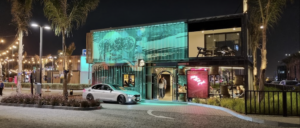
Hossam revealed the complex plans to meet the growing consumer demand by launching its next phase in New Cairo.
“I think in the upcoming five years, the drive-thru market is going to go somewhere else because it is very convenient with the number of roads and bridges that are under construction. Going from A to B now takes an hour. But, in the future, it will take two hours because we have the New Administrative Capital; and all these new residential cities that are far [from central Cairo], so if you have drive-thru options en-route, of course, it is going to work,” Hossam predicted.

